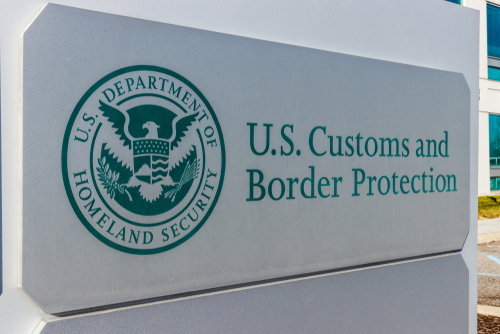
A second attempt at legislation, introduced to the Senate last week, would compel the U.S. Customs and Border Protection (CBP) to hire at least 600 additional officers per year until its staffing needs are filled.
The Securing America’s Ports of Entry Act was proposed by U.S. Sens. Gary Peters (D-MI), chairman of the Homeland Security and Governmental Affairs Committee, and John Cornyn (R-TX). In addition to hiring officers, it would also grant CBP permission to hire support staff and technicians that tackle non-law enforcement functions. This could be particularly useful in the senators’ home states of Michigan and Texas, which house some of the nation’s busiest border crossings.
“Dedicated Customs and Border Protection officers need more support to swiftly process lawful trade and travel coming through our ports of entry, as well as prevent illegal activities like drug trafficking at our borders,” Peters said. “This bipartisan bill will address shortages of these officers so Customs and Border Protection can effectively and efficiently operate and secure our borders – and maintain Michigan’s status as a hub of international commerce.”
A big part of this push is to crack down on fentanyl and other illicit drugs crossing the border. CBP figures showed that nearly 85 percent of fentanyl seized by CBP last year was seized at ports of entry. Not only would the new officers potentially help with this, but the addition of support staff would allow more existing officers to return their focus to law enforcement priorities such as halting drug trafficking.
“When CBP officers are pulled off their posts, we run the risk of legitimate trade and travel grinding to a halt,” Cornyn said. “Nowhere do we feel this more acutely than in Texas, where we have more Ports of Entry than any other state. This bill aims to address the ongoing crisis at the border while protecting the flow of trade through our ports.”
On top of the new hiring demands, the bill would also require reports on infrastructure improvement at ports of entry to bolster drug interdiction efforts, detection equipment that could help with those efforts, and safety equipment to protect officers from accidental exposure to toxins. Additionally, more officers could potentially help reduce waiting times for legal travelers, merchandise, and more at ports of entry.
The bill is backed by organizations such as the American Association of Airport Executives, Gerald R. Ford International Airport Authority, National Treasury Employees Union, Airports Council International – North America, National Treasury Employees Union Chapter 173, and American Great Lakes Ports Association.




